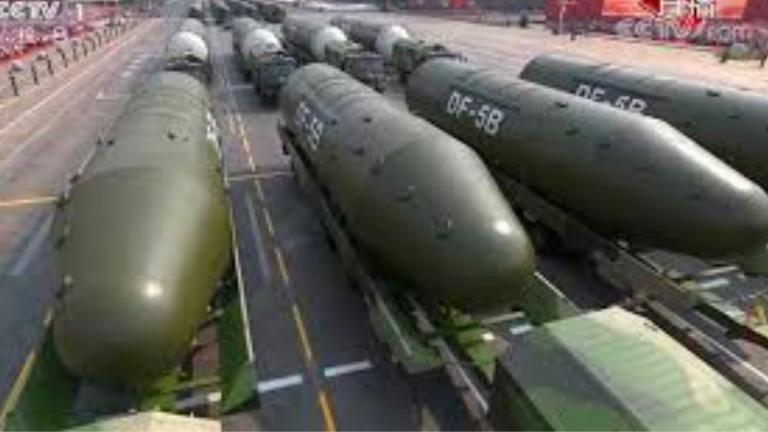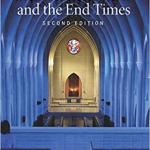
The geopolitical order is not just a matter of world politics, of empires and kingdoms; it is also a matter of people going hungry, of families not being able to sustain themselves, and of the rich and the powerful making sure that the system continues working for the benefit of those in power, even if it means hunger and starvation for others.[1]
The New Testament opens with an enormous proclamation: “The time is fulfilled, and the kingdom of God is at hand; repent and believe in the gospel” (Mark 1:15).
There is little doubt in my mind that Jesus’ words and deeds must be understood in light of the fact that He was proclaiming that with His coming the kingdom of God has arrived.
After all, one of the key features of the kingdom of God is the presence of God among His people. Since Jesus was the divine presence among us (see John 1:14), the kingdom surely began with His arrival.
Hence, the Father’s declaration from heaven that “this is my beloved Son” (Matt 3:17; Luke 3:22). This was a clear allusion to Ps 2:7 and, thereby, affirms that the promised king has arrived.
NB: for a more complete discussion see my: Understanding the NT and the End Times 
Now, in my last post, I noted that the nations of the world (empires) stand fundamentally opposed to the kingdom of God. In this post, I intend to expand on this point.
Why was Jesus rejected?
I would like to begin by asking, “why did the religious leaders in Jerusalem so strongly oppose Jesus that they decided to have Him crucified at the hands of Rome—the enemy state?
Even more puzzling is the question: how is it that the people of Israel, the very people who were longing for the arrival of the messianic kingdom and their release from oppression, were persuaded to believe that Jesus was not the long-awaited king to the point that they joined in the chorus “crucify, crucify” (John 19:6)?
This later question is even more puzzling when we realize that Jesus healed their sick, caused the blind among them to see, raised their dead, and proclaimed things, such as, “Give to everyone who asks of you” (Luke 6:30), which surely meant that if His words were carried out, then those who were poor and who lacked a consistent supply of daily food would receive such without any obligation to repay?
If ever there was a king for such a people, then it was Jesus!
What happened? What did He do or say that led to His death; especially, a death that was endorsed by the people?
I think there are two key points that help us answer this question.
- Jesus’ kingdom is not what they were expecting.
They were expecting a king who would rule from the throne of David.
They were expecting a nationalistic kingdom that was for them and not their enemies.
They were expecting a kingdom in which they ruled in peace and safety from their enemies.
They were expecting a king who would rule with power the way the kings of the world ruled.
Even after being with Jesus for some time, the disciples were still anticipating a nationalistic king who would rule like the kings of the world rule.
Thus, James and John see an opportunity to punish some Samaritans and they ask Jesus,
“Lord, do You want us to command fire to come down from heaven and consume them?” (Luke 9:54). In the disciples’ minds, this is how it is done! They may even have thought that, as Jesus’ right-hand men, it was their duty! Jesus’ reply to them, in effect, says, “not in My kingdom”:
“But He turned and rebuked them, and said, “You do not know what kind of spirit you are of; for the Son of Man did not come to destroy men’s lives, but to save them” (Luke 9:55-56).
Mary and Zacharias’ songs (Luke 1:46-56; 68-79) also suggest that they believed that Jesus would be a nationalistic (Jewish) king who would defeat the enemies of God’s people (Rome) and establish a Jewish kingdom, a kingdom that was for the poor and the oppressed, is evidence in
NB: I placed in parentheses the key features of these songs with regard to the points at hand
46 And Mary said:
“My soul exalts the Lord, . . .
50 And His mercy is upon generation after generation
Toward those who fear Him. (i.e., “us”: the poor and the oppressed Israelites)
51 . . . He has scattered those who were proud in the thoughts of their heart. (Rome)
52 He has brought down rulers from their thrones, (Rome)
And has exalted those who were humble. (the poor and the oppressed)
53 He has filled the hungry with good things; (the poor and the oppressed)
And sent away the rich empty-handed. (Rome)
54 He has given help to Israel His servant, . . . (nationalistic)
55 As He spoke to our fathers, (nationalistic)
To Abraham and his descendants forever,” (nationalistic)
67 “Zacharias was filled with the Holy Spirit, and prophesied, saying:
68 “Blessed be the Lord God of Israel, (nationalistic)
For He has visited us and accomplished redemption for His people, (nationalistic)
69 And has raised up a horn of salvation for us. (nationalistic)
In the house of David His servant— (nationalistic)
70 As He spoke by the mouth of His holy prophets from of old—
71 Salvation from our enemies, (nationalistic; Rome)
And from the hand of all who hate us; (nationalistic; Rome)
72 To show mercy toward our fathers, (nationalistic)
And to remember His holy covenant, (nationalistic)
73 The oath which He swore to Abraham our father, (nationalistic)
74 To grant us that we, being rescued from the hand of our enemies, (nationalistic; Rome)
77 To give to His people the knowledge of salvation. (nationalistic)
NB: It is important to note that when a statement is identified as nationalistic, it may also identify that line as referring to Rome and as for the poor and the oppressed. After all, the narrative of the Jewish people going back to their time as slaves in Egypt (Exodus) 2000 years earlier is that they are the oppressed and the nations are the oppressors. Almost by default, their notion of the coming messianic king was nationalistic, anti-Rome, and for the poor and the oppressed.
Why, then, did they not accept Jesus as the messianic king? Although the answer to this question is certainly multi-faceted, my second point is that:
- Jesus’ kingdom is not what those in power wanted
Jesus was crucified because those in power wanted to retain their power. The problem was that Jesus demanded that they relinquish their power, follow Him, and give from their abundance to the poor.
This is fundamental to understanding Jesus!
Think for example of the rich young ruler who was asked to sell all that he had, give to the poor, and follow Jesus (Luke 18:18-30).
Luke notes that the man left and he was “very sad, for he was extremely rich” (23). Matthew adds that “he went away grieving; for he was one who owned much property” (Matt 19:22).
For someone in the first century to be “extremely rich” and one who “owned much property” means that he was a person of power! Jesus was not simply asking him to sell his possessions, He was also asking the man to forego his power.
But, why did the people—the poor and oppressed—reject Jesus? Why did they shout “crucify, crucify”? Wasn’t Jesus the very kind of King they wanted?
In order to answer this we must recognize one of the fundamental features of empire.
Empire and deception
Though I do not intend to suppose that there is one simple answer to the question as to why the poor, the marginalized, and the oppressed would side with those in power and shout “crucify, crucify”, I would contend that high up on the list of reasons is the fact that those in power convinced them that it was for their good to have Jesus crucified.
Matt 27:20, “the chief priests and the elders persuaded the crowds to ask for Barabbas and to put Jesus to death.”
Due to the length of this post, allow me to summarize:
I noted in an earlier post that Satan is the deceiver (Rev 12:9) who empowers the beast: i.e., empire/nations (Rev 13:2).
It only stands to reason that those in power utilize Satan’s most powerful weapon: deception.
Empire, deception, and the Church
This raises critical questions for the church. Unfortunately, I do not think the church is even asking the questions, let alone answering them.
It is critical for the people of God to make sure that we too have not been deceived. That those in power have not at times convinced us that they rule for our well-being.
This is not to deny that some politicians may have good motives. This is not to say that some do not advocate for and enact laws that are for the well-being of all.
It is simply to acknowledge that ultimately the beast is in power—until Christ returns (1 Cor 15:24-28)–and deception is his chief weapon.
Our goal is to keep these posts free of charge. I do not intend to ever hide them behind a paywall. I can only do this if those of you who have been blessed by them and can afford to give ($5, $10, $25, or more/month) do so. You can give a tax-deductible contribution by following this link.
Please share this post and let others know about determinetruth.
If you wish to view this blog on your smartphone through the Determinetruth app simply download the “tithe.ly church” app on your smartphone and insert “determinetruth” as the church name you wish to follow. Once it is loaded, simply click on the “blog” icon and it will automatically load.
If you would like to have Rob speak at your church or organization in person or via zoom, please let us know by filling out the contact info on the Contact me tab on this site.
Remember that our friends at Hearts & Minds, an independent bookstore in central Pennsylvania, have offered to give our listeners a 20% off on nearly anything ordered. Just mention Determinetruth and they will get back to you promptly with personalized service like you rarely see these days.
[1] Justo Gonzalez, in David Rhoads, From Every People and Nation (Kindle Locations 914-916). Kindle Edition.












